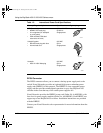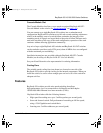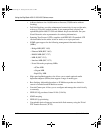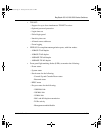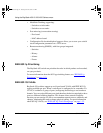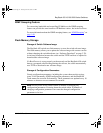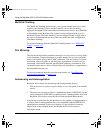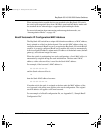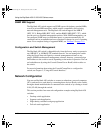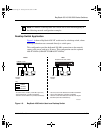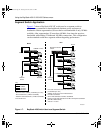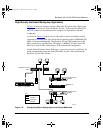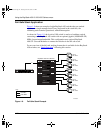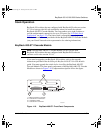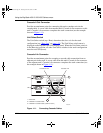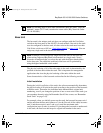
Using the BayStack 450 10/100/1000 Series Switch
1-18
302401-D Rev 00
SNMP MIB Support
The BayStack 450 switch supports an SNMP agent with industry standard MIBs,
as well as private MIB extensions, which ensures compatibility with existing
network management tools. The BayStack 450 switch supports the MIB-II
(RFC 1213), Bridge MIB (RFC 1493), and the RMON MIB (RFC 1757), which
provide access to detailed management statistics. With SNMP management, you
can configure SNMP traps (on individual ports) to generate automatically for
conditions such as an unauthorized access attempt or changes in a port’s operating
status. For a complete listing of supported MIBs, see “
Features” on page 1-11.
Configuration and Switch Management
The BayStack 450 switch is shipped directly from the factory ready to operate in
any 10BASE-T or 100BASE-TX standard network. You can manage the switch
using the Nortel Networks Optivity
®
network management software or any
generic SNMP-based network management software; however, you must assign
an IP address to the switch or stack, depending on the mode of operation. You can
set both addresses by using the Console/Comm Port or BootP, which resides on
the switch.
For more information about using the Console/Comm Port to configure the
switch, see Chapter 3, “Using the Console Interface.”
Network Configuration
You can use BayStack 450 switches to connect workstations, personal computers
(PCs), and servers to each other by connecting these devices directly to the switch,
through a shared media hub that is connected to the switch, or by creating a virtual
LAN (VLAN) through the switch.
This section provides four network configuration examples using BayStack 450
switches:
• Desktop switch application
• Segment switch application
• High-density switched workgroup application
• Fail-safe stack application
kombk.book Page 18 Tuesday, June 29, 1999 3:25 PM



